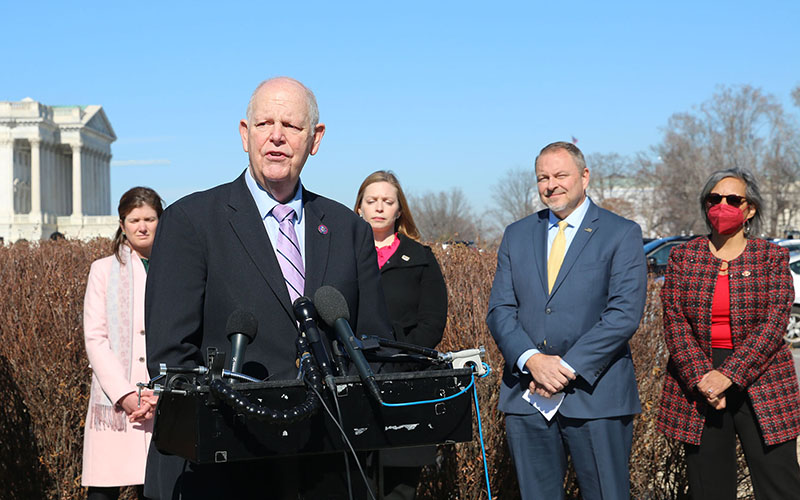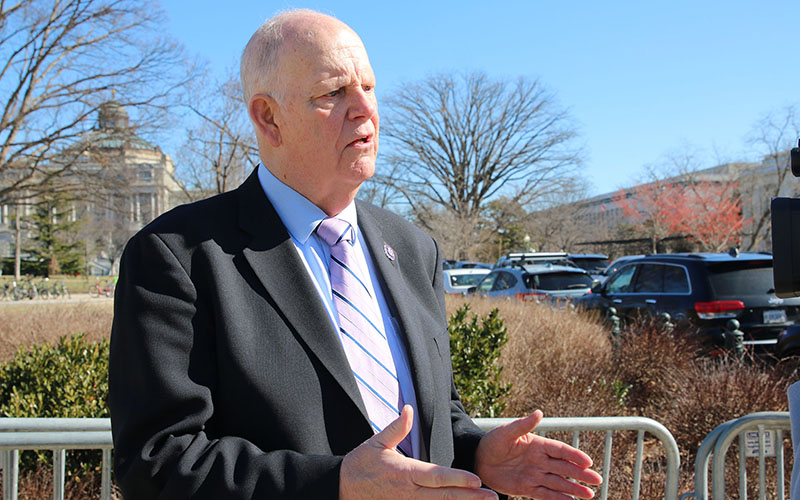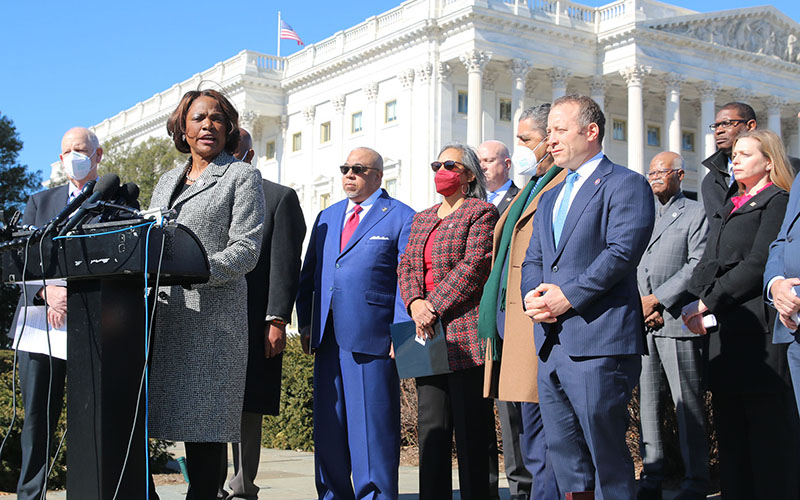WASHINGTON – Violent crime rates in Arizona rose faster and remained higher than the national rate in recent years, according to the latest data from the FBI.
Violent crime – which includes murder, rape, robbery and aggravated assault – rose 4.6% in the U.S. between 2019 and 2020, to a rate of 398.5 crimes per 100,000 people in 2020. The rate in Arizona climbed 8.6% to 484.8 per 100,000 in the same period, according to data from the FBI’s Crime Data Explorer.
To address that surge, lawmakers on Wednesday called for action on a bipartisan bill that would allocate $100 million a year for the next decade to support police agencies and increase assistance to victims and their families, which Rep. Tom O’Halleran, D-Sedona, called a “step in the right direction.”
“We cannot afford to disinvest, we have to continue to invest in our officers in our society,” said O’Halleran, a former Chicago police officer. “Because when we invest in training, and support of our officers, we invest in the community and the safety of those within our community.”
O’Halleran joined other House members and representatives of police organizations on Capitol Hill to push for the Violent Incident Clearance and Technological Investigative Methods ACT, which aims to improve clearance rates for homicides and other shootings.
The VICTIM Act would require the Justice Department to administer a grant program for local police agencies that would allow departments to hire and retain police officers – particularly homicide detectives – provide training and equipment.
It calls for officers to be trained to address the needs of victims and their families, and it requires sufficient funding and staffing for victim services, including relocation, counseling, funeral expenses, lost wages and more.
Andy Edmiston, director of government affairs for the National Association of Police Organizations, said the funding is needed to help underfunded departments battle the surge in violent crime.
“Homicide rates has jumped nearly 40%,” Edmiston said at Wednesday’s event. “Police departments across the country are fighting to contain this increase in violent crime but they are understaffed, under-resourced and struggling to hire and retain good, qualified officers.”
Sgt. Hector Encinas, spokesperson for the Tempe Police Department, said he is not familiar with specifics of the bill, but that “any type of support, financially or otherwise is good, it helps us do our job.”
“What’s today’s issues may not be next year’s issues, but if there’s money and training available … we can respond much more effectively,” Encinas said.

Rep. Tom O’Halleran, D-Sedona, and others at the event said residents of high-crime areas want more police funding, not less. (Photo by Emily Sacia/Cronkite News)
The FBI data has drawbacks: Not every police department in the country – or the state – provides information to the voluntary Uniform Crime Reporting system, and the FBI attempts to fill in blanks for those which do not. But the report has the advantage of building on decades of data from across the country.
According to the FBI, the national rate of 398.5 violent crimes for every 100,000 Americans in 2020 was the most since 2010, when the rate stood at 404.5. Arizona’s 2020 rate of 484.8 violent crimes per 100,000 was the second-highest for the state in that decade, exceeded only by 2017’s rate of 505.7 crimes.
2020 was the last full year for which data are available from the FBI.
The bipartisan bill has 30 co-sponsors, including O’Halleran and Rep. Greg Stanton, D-Phoenix. Its backers bristled Wednesday when asked whether the bill clashes with the belief by some that Democrats are more interested in defunding the police than directing funds their way.
“When we talk to communities, particularly those in some of the most high-crime areas, they will say, ‘No, we don’t want to defund the police, we want to fund the police,'” said Rep. Val Demings, D-Fla., and lead sponsor of the bill. “We don’t want to see less police, we want to see more police.”
That was echoed by Rep. Robin Kelly, D-Ill., who said that if “you take a survey among the Democratic Congress members, most people are not saying defund the police.”
Despite Democrats controlling the House, the bill has not moved since being introduced in October and assigned to the Judiciary Committee. But Demings said she is confident, as the bill’s sponsors are “laser-focused” on getting it passed.
“This bill has bipartisan support and you better believe we’re going to work with leadership and everybody that we can to get this bill … signed into law,” she said.
O’Halleran said he is optimistic, even though the bill is not an “end-fix” to Arizona’s increasing violent crime rate.
“Our citizens need to be protected. Our officers need to be protected,” he said. “That goes with training, picking out the right officers, making sure we have follow-through and the investment in our society that this Congress should be doing.”



